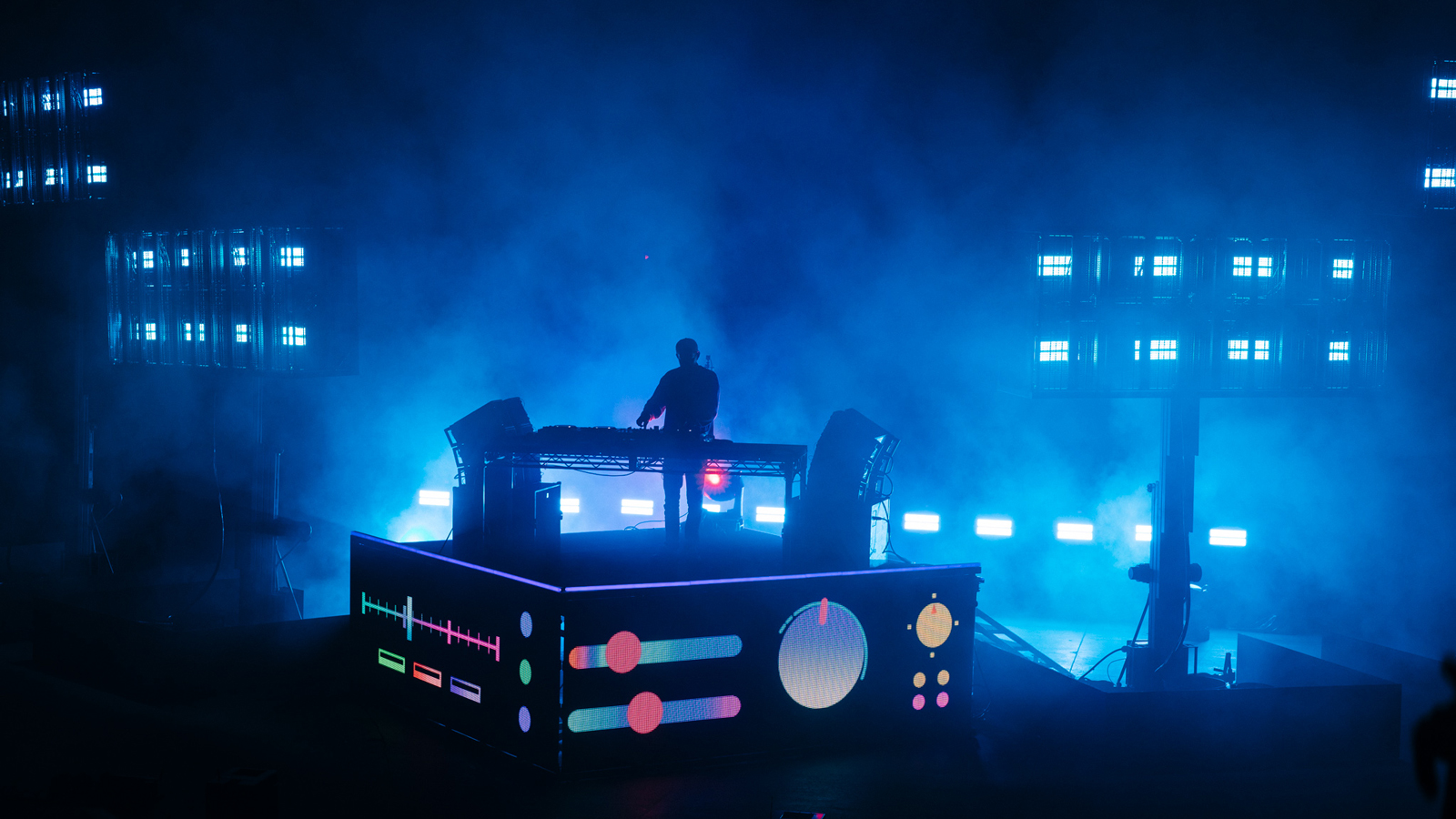

Most programmers start as lighting technicians, then become show operators gradually developing the skills of programming. Programmers need to have good computer skills, a logical approach, and a good eye – so they can see the stage in the same way the LD does.

It's is largely the programmer's job to make the lighting rig do what it needs to do so that the LD’s ideas can be brought to life. Programmers (as distinct from operators) are usually only required on larger shows, and like the Production Electrician and Touring Chief LX they will work closely with the LD. Many touring chiefs started working at a lighting hire company before moving on to be touring lighting technician, and gradually gaining the skills to be in charge. Many started their working lives as theatre technicians. Most Production Electricians have at least some formal training. On some productions they may travel all over the world, though on a busy tour the tour staff may not get to see much more than the inside of a lot of clubs, theatres, arenas or stadiums. Touring a lighting rig means designing the system, so that it can quickly be packed away in trucks, move, and set up somewhere new, sometimes every day. These men and women lead teams who build shows in a single venue, or for a tour. Often they look after the show for the LD, who may not come to every performance or date of the tour. They usually work very closely with the lighting designer, and on largest productions may lead a big team. They work on the larger shows, theatre of all kinds, concert touring and all the rest. Generally these are the people in charge of setting up and maintaining the lighting rig and all the associated equipment. Production Electrician and Touring Chief LX There is no single place to learn all these skills! To do it well at scale requires great organisational skills, and probably great selling skills too – someone has to be persuaded to spend a lot of money before any LD gets a big rig to play with. To do this work consistently well requires knowledge, talent and experience. After all they will be asked to come up with ideas in light, the rig plan that will make it possible to make those ideas real, to focus all the instruments, create all the cue states and communicate the way they should be played back each show, and stay reasonably sane. Generally LDs need to have creative vision and a ‘craft knowledge’ of how the lighting equipment they use works. Live concert touring (what some still call Rock 'n' Roll), events and spectaculars (such as opening ceremonies for example) commercial product launches and conferences all make use of designed lighting – and so provide work for lighting designers and all the people who work with them. On smaller shows however the LD is often expected to do lots of things like rigging the equipment and programming cues into the lighting desk. On a large show, the LD may also be responsible for putting together the team of people who realise the lighting design - production electrician, programmer, specialist technicians, follow spot operators etc. Let’s have a look at some of the top jobs.Īs the name suggests, the Lighting Designer is responsible for the lighting design, that means the configuration of lighting equipment and the creation of lighting states (cues). Equipment, scale, complexity and increased expectation means that lighting live performance at whichever scale it takes place often needs a team of programmers, assistants, associates and technicians to help and support a lighting designer to work to their best potential. Meanwhile, many Lighting Designers also have previous career experience in roles such as Technical Director or Internship.There are a range of jobs that will suit all abilities and skillsets. In fact, many Lighting Designer jobs require experience in a role such as Stage Manager. You may find that experience in other jobs will help you become a Lighting Designer. Other degrees that we often see on Lighting Designer resumes include Master's Degree degrees or High School Diploma degrees. When we researched the most common majors for a Lighting Designer, we found that they most commonly earn Bachelor's Degree degrees or Associate Degree degrees.
#Stage lighting design jobs how to#
Even though most Lighting Designers have a college degree, it's possible to become one with only a high school degree or GED.Ĭhoosing the right major is always an important step when researching how to become a Lighting Designer. In terms of higher education levels, we found that 7.7% of Lighting Designers have master's degrees. We've determined that 68.9% of Lighting Designers have a bachelor's degree. If you're interested in becoming a Lighting Designer, one of the first things to consider is how much education you need.


 0 kommentar(er)
0 kommentar(er)
